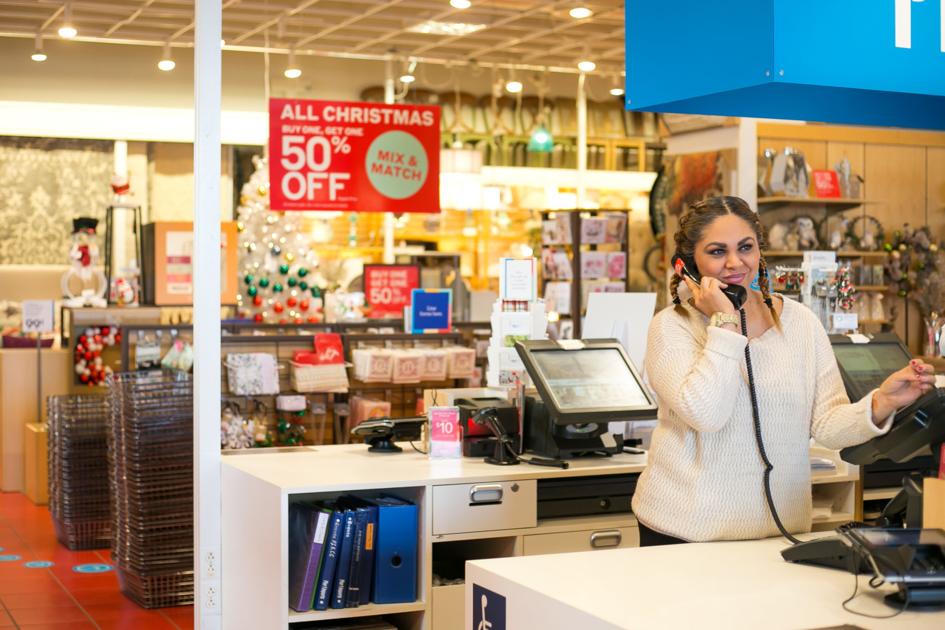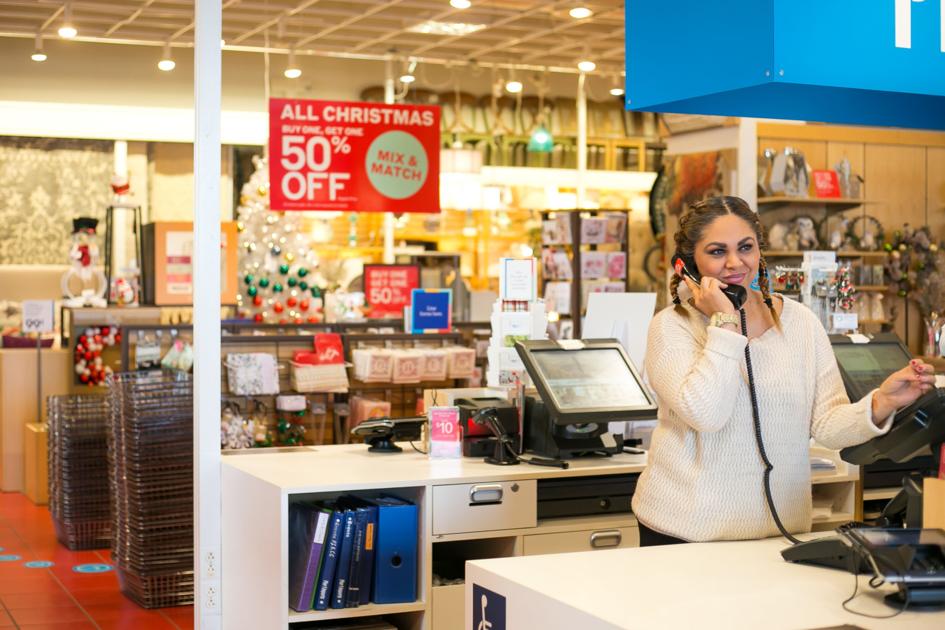
Much has been made about the demise of retail. And for a good reason: Many national retail brands have been forced to close some or all their locations.
Online shopping continues to impact many retail brands, especially those with a sizable physical store presence. Amazon’s search for a second headquarters garnered plenty of buzz and served as a reminder of continued and massive growth for the Seattle-based online retailer.
Retail remains a major source of jobs in Yakima County — about 1 in 10 residents are employed in the sector, according to figures from the state Employment Security Department. That means recent closures can be a blow to many Yakima County residents.
There have been other blows to the retail industry, such as new tariffs implemented by President Donald Trump on countries such as China, where many items sold by retailers are made.
Still, those in the local retail industry said the sector is far from dead. Many note that while retail on the national level had suffered, generally stores here have fared better than counterparts in other parts of the country.
And while some retailers have closed, others are ready to come in, said Linda DiLembo, general manager of the Valley Mall in Union Gap.
“Because we’re a growing community, a lot of different tenants are taking a look at us,” she said.
DiLembo and several members of the local retail community looked back on retail in 2018 and shared thoughts with the Yakima Herald-Republic on what to watch for in the coming year.
What happened in 2018
Several retailers closed Yakima Valley locations in 2018, including Chico’s, a popular women’s clothing store, and Payless Shoe Source. The Sears Hometown Store in Toppenish also closed. But the most notable and talked-about closure came when the Toys R Us store in Union Gap closed in July amid the New Jersey-based toy retailer’s bankruptcy. The Union Gap store was a standout in the retail industry for its experienced staff — the store’s 30 employees had some 200 years of job experience, and general manager Ryan Kloepfer and assistant general manager Betty Stevens had worked from when the store opened in October 1996 to its final days.
Kloepfer, who now works in a job outside of the retail industry, said he’s still approached by community members, including former customers, who lament the store’s demise. Several retailers, including Fred Meyer and J.C. Penney, have boosted toy offerings in hopes of drawing former Toys R Us customers, but it remains to be seen if the strategy toward toys has long-term sustainability for those stores.
Several retailers also opened new stores in the Yakima Valley. Sketchers Outlet, the shoe company; Torrid, a clothing brand aimed at plus-size women; and Concept Appeal, a Kennewick-based fashion boutique, were among the new tenants that opened at the Valley Mall this year. These new mall arrivals reflect a key trend: The Yakima Valley’s population is getting younger. DiLembo, the Valley Mall manager, noted state figures that showed that 55 percent of all Yakima County residents were between ages 15 and 34.
“The key with that younger group is value-centered shopping,” she said. “They’re looking for good-quality merchandise at a quality price.”
Tariffs created unpredictability for retailers. President Trump has maintained that implementing tariffs on countries such as China is essential to level the trade playing field. But it has caused an adverse impact on the retail industry, which often orders items made in China and other countries that have received tariffs from the Trump administration.
The effect is felt at the Pier 1 Imports store in Union Gap, which sells a variety of home décor items and furniture. While the store doesn’t import a ton of items from China, tariffs still impact the overall supply chain, said general manager Michelle Lara.
Many items end up in customs for longer, and something that could be ordered and shipped in seven to 10 days now can take eight to 10 weeks.
The store has had to adjust how it orders and tracks merchandise to the store. Previously, store staff members were able to order items without much fanfare. Today, the store can’t just order and wait for it to show up — the store’s managers now constantly track the whereabouts of a given item, Lara said. And the store is in constant communication with customers to ensure them that the product they ordered is on its way.
“It’s a ton more hands-on,” she said.
What to watch for in ’19
There will be more retail experiences and events. Retailers no longer just sell products. More retailers have turned to events as a way to draw new customers or to cultivate relationships with existing ones.
Pier 1 Imports, for example, started offering wine glass paint parties that allow customers to customize their glass purchases. The Valley Mall has held events throughout the year, such as its Silent Santa event aimed for children on the autism spectrum. The Yakima Farmers Market also relocated to the mall’s parking lot after many years in downtown Yakima.
Those experiences help traditional physical shopping centers remain relevant, said DiLembo, the Valley Mall general manager.
“You’re actually making a memory for a family or individual,” she said. “Online shopping doesn’t cut it when you want to make memories.”
Retailers will continue fine-tuning their omnichannel strategy. A successful retailer these days isn’t thinking online versus brick-and-mortar; it’s figuring out a way to get shoppers to buy both online and at the store. Lara, the Pier 1 Imports general manager, said that in the past year she’s been aiming to get at least one-third of her store’s sales from online and that she’s well above that amount.
But she also wants to make sure people know that in some cases, such as buying furniture, visiting the physical store may be the best option. She’s seen far too many customers order something online only to realize it doesn’t quite work when the item finally arrives. Lara said she and her employees will work on being more inquisitive with customers in a way that is not too intrusive.
“We just really want to peel that onion back and find out what they’re looking for, so we can find the right item,” she said.
More retail space may be used in a variety of ways. Anytime Fitness will be opening in the Valley Mall this month. A gym might not be the first thing most people think of when it comes to a mall, but DiLembo said it’s becoming more commonplace to provide customers such amenities for additional convenience.
“You can exercise and pick up your children’s clothing (in one place),” she said.
DiLembo also said that entertainment-driven businesses will continue being an essential part of any retail development. The Valley Mall, for example, houses a facility where customers can play video and board games. And she also hinted at the increase of another type of tenant: “We’re looking forward to announcing another restaurant in the future.”

